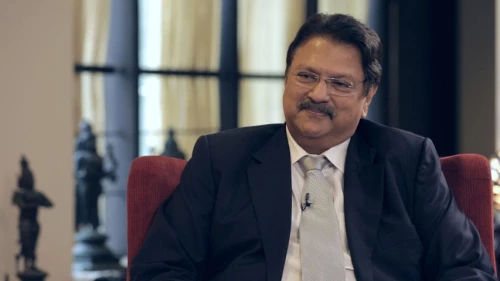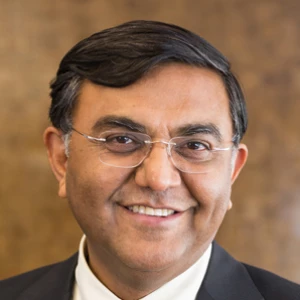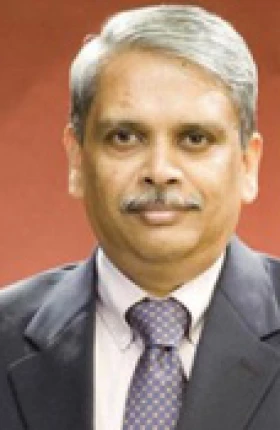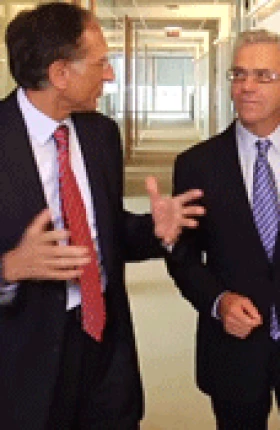Ajay Piramal is among India’s leading industrialists, philanthropists, and social entrepreneurs. He heads Piramal Group, one of India’s largest conglomerates, with activities in health care, real estate, financial services, information services, and glass packaging. Known for identifying opportunities ahead of the curve, Piramal diversified Morarjee Textiles, a century-old family business, moving into the health care sector in 1988. Today, Piramal sells its products and services in more than 100 countries and has operations in the U.S., the UK, Canada, Germany, Sri Lanka, and India.
In 2010, the group sold a portion of its domestic formulations business to Abbott Laboratories and used the proceeds of the sale to invest in and acquire a range of businesses in areas such as financial services, information management, consumer product brands, and imaging.
Piramal established Piramal Foundation to help develop breakthrough initiatives in, for example, health care, education, water quality and supply, and women’s empowerment. The foundation has improved the quality of life for millions of people.
Recently, Janmejaya Sinha, BCG’s chairman of the Asia-Pacific region, chatted with Piramal. Edited excerpts from their conversation follow.
Ajay, thank you for making the time to join our leadership-series discussion.
My pleasure.
In India, you’re called the M&A king: your timing is perfect. How do you see what others don’t?
Usually there is a lot of noise in the environment, but one needs to see what is really important. Let me give you an example. In the late 1980s, when we entered the pharmaceutical sector, the view of multinationals—pharmaceutical companies that had been operating in India for more than 50 years—was that India wasn’t a great place to be because there were price controls and there was limited patent protection. On the other hand, most of the Indian companies shared the view that multinationals operating out of India had huge costs and had become inefficient. Nobody was interested in the industry, and the multinationals wanted to get out. No one in India wanted to acquire this type of business.
We saw a huge opportunity. The market was growing. The penetration of modern medicine was still limited. There were lots of new doctors coming in, and treatments were required. That’s why we entered into the pharma space then. Most experts, most consultants, would have said, “That’s not the place to be.”
One just has to understand the basics. I think sometimes we can’t see the woods for the trees.
You develop skills and a business, and then you analytically let the business go. You’ve been successful at getting into new businesses that need new talent. How do you do that? Most people find it hard to shift gears and re-create. How have you attracted the talent?
The way we’ve attracted talent is by giving people the opportunity to be true entrepreneurs. Entrepreneurship is giving senior people—and even young people—far more responsibility than they’ve ever expected. We always give them more responsibility than their role calls for. That’s one thing.
We also give them the freedom to act, the freedom to make mistakes. We have a bias for action. As long as you don’t make mistakes too often, it’s fine. All of us make mistakes.
Besides that, I think we’re very fair in our appraisals. It’s an open and transparent organization. That helps. Also, I think humility is important. Ours is a humble organization, so people are willing to listen to contrary points of view. Finally, I think it’s a values-based organization. High-quality people want to work in an organization that is driven by values.
Long ago in the 1960s, Roy Amara said that the impact of technology is overestimated in the short run but underestimated in the long run. How are you able to get past the noise and look at the impact of technology on your businesses?
Frankly, this is a big challenge. It’s not easy to really understand the impact of technology. That’s why, after we exited from our India-branded generics business in 2010, we decided that we should be in a country and a business at the leading edge of technology. That’s why we invested a significant amount in the U.S. We acquired a business that converted data and information into knowledge and, ultimately, wisdom.
The cultures are different. The ways you address people in India and in the U.S. are very different. Our business leaders have to be much more conscious, and we need to educate them, which we keep on doing. How do we learn? We learn by traveling, we learn by interacting, and we learn by meeting people: we try to incorporate that. We have people from all over the world working for us, and I think they’re working well together.
How have you made your organization and yourself so humble?
My father was quite a successful businessman, but he never gave the impression that he was successful. He was very humble, and that’s how I’ve grown up. To some extent, that environment shaped me.
If you’re humble, you can get the best minds to come and talk to you because you have the ability to listen. We’ve grown a lot through acquisitions, and because we’re humble, we have the ability to accept what is good in a company we acquire—and that aligns people better. You get the best out of those people. All of that helps.
What type of legacy do you want to leave behind? What do you want to be remembered for?
Our group’s purpose is “doing well and doing good: making a positive difference in the world around us, serving people, and living our values.” Whatever we do, it’s important that we make a difference. At the end of your life, people should be able to say that this person made a difference—even a minuscule difference—for the better. The only way you can make a difference is by serving people. We do it through our values of knowledge, action, and care.
Thank you so much, Ajay. It was really fascinating to talk to you.
Thank you, Janme.
About Ajay Piramal
Education
1990, Advanced Management Program, Harvard Business School
1977, MMS, Jamnalal Bajaj Institute of Management Studies
1975, BS, with honors, University of Bombay
2014, honorary PhD, Amity University
Career Highlights
1984–present, chairman, Piramal Group
Outside Activities
2015, Business Leader of the Year, Indo-American Chamber of Commerce
2013 and 2014, Philanthropy Awards, Forbes India
2006, UK Trade & Investment Council, Entrepreneur of the Year Award
Before he’d turned 40, Ajay Piramal was named a “global leader of tomorrow” by the World Economic Forum. He is a member of the national council of the Confederation of Indian Industry, and sits on the Alternative Investment Policy Advisory Committee of the Securities and Exchange Board of India.







